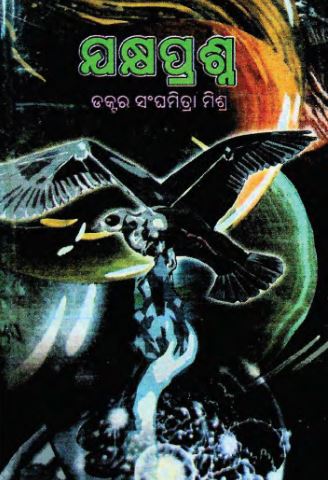Sanghamitra Misra’s “Jakshaprasna,” published in 2001, is a remarkable contribution to Odia literature, blending cultural introspection with philosophical inquiries through the lens of traditional storytelling. The book, which translates to “The Questions of the Tortoise,” serves as a modern reflection on ancient wisdom, utilizing the tortoise as a symbol of wisdom and patience, traits that are crucial for understanding the complexities of life.
“Jakshaprasna” takes readers through a journey where the tortoise poses profound questions about life’s purpose, morality, existence, and the interconnectedness of all beings. The narrative structure of the essay book captivates the reader by intertwining mythical elements with contemporary issues, urging us to contemplate the philosophical implications embedded within everyday life.
One of the central themes of the book is the struggle between knowledge and ignorance. Misra illustrates through the tortoise’s queries how ignorance often clouds human judgment and leads to a misinterpretation of reality. This struggle is not just personal but societal; Misra urges her readers to seek clarity and knowledge in a world beset by overwhelming information yet plagued by misinformation.
Misra’s work also serves as a cultural critique. Through the lens of Odia traditions and folklore, she examines how modern society has drifted away from these age-old values. The tortoise’s questions resonate with the current generation, who often grapple with the demands of modern life while yearning for deeper connections to their roots. Misra successfully evokes a sense of nostalgia, encouraging readers to reflect on their own cultural identities and the wisdom encapsulated within them.
The book is structured in a series of essays, each one flowing seamlessly into the next, creating a cohesive narrative. Misra’s writing style is both lyrical and poignant, effectively capturing the essence of her reflections. She employs a conversational tone, making the text accessible while encouraging readers to engage in self-reflection. This approach invites readers not only to read but also to think critically about the subjects being addressed.
At its core, “Jakshaprasna” serves as a philosophical inquiry into the human condition. Each question posed by the tortoise can be seen as an invitation for introspection. Misra encourages readers to confront uncomfortable truths about their desires, ambitions, and moral standings. This journey of self-discovery is imperative for personal growth, and Misra effectively communicates that wisdom does not solely arise from formal education but from lived experiences and reflective thinking.
In conclusion, “Jakshaprasna” by Sanghamitra Misra is more than just an essay book; it is a thoughtful exploration of life’s existential queries through the allegorical figure of the tortoise. It effectively bridges the gap between traditional wisdom and modern challenges, prompting readers to reassess their values and beliefs. This work is a significant addition to Odia literature, encouraging not only an appreciation of cultural heritage but also a commitment to personal and societal growth. Misra’s brilliant fusion of narrative and philosophy makes “Jakshaprasna” a timeless piece that continues to resonate with readers across generations, inviting them to ponder, reflect, and ultimately, evolve.
Books Info
| Books name | Jakshaprasna/ଯକ୍ଷ ପ୍ରଶ୍ନ |
| Author | Sanghamitra Misra |
| No Of pages | 138 |
| Publisher | Agraduta |
| Publication | 2001 |
| Printed At | Panchasakha Prakashani |
| Distributor | NA |

